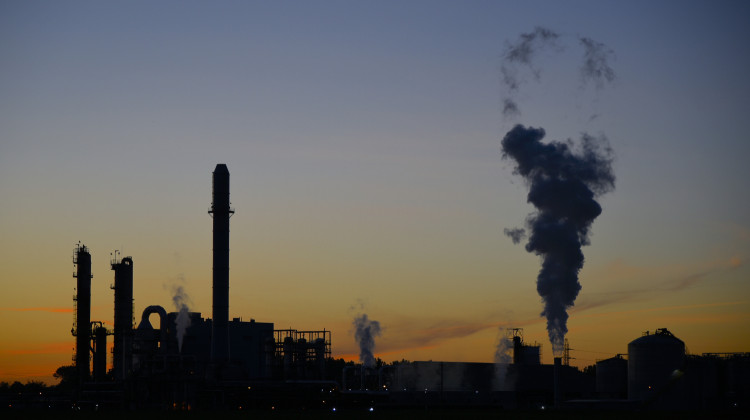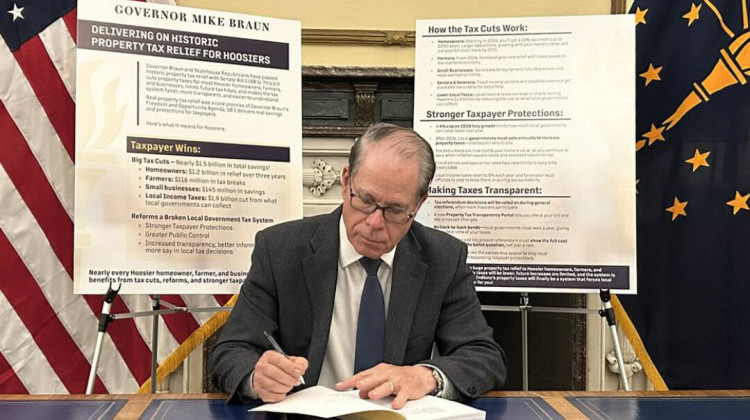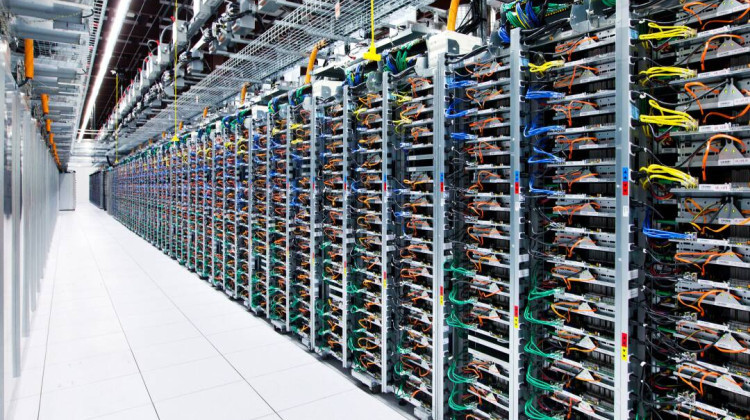
Indiana is one of the top states for ethanol production and more than 40 percent of the state’s corn crop is used for it.
Justin Hicks / IPB NewsThe Indiana Senate passed a bill Monday that would provide tax credits to gas stations that sell higher blends of biofuels like ethanol — as well as credits for companies that make and blend the fuel.
Indiana is one of the top states for ethanol production and more than 40 percent of the state’s corn crop is used for it.
Chris Cherry is the president of the Indiana Corn Growers Association, which supports Senate Bill 254.
“It will increase demand for corn right here in Indiana and provide additional income for farmers and increased economic activity in rural areas," he said.
Cherry said, in light of retaliatory tariffs from Canada, Indiana needs to develop domestic markets for corn.
Biorefineries and gas stations also spoke in favor of the bill. The Hoosier Environmental Council is opposed.
Its president, Sam Carpenter, said while using gas with ethanol puts less pollution into the air than traditional gasoline, the process to make ethanol isn’t as climate-friendly.
READ MORE: Corn stover could be key to a more climate-friendly fuel in Indiana.
Join the conversation and sign up for our weekly text group: the Indiana Two-Way. Your comments and questions help us find the answers you need on statewide issues, including our project Civically, Indiana and our 2025 bill tracker.
Converting something like a forest to cropland releases carbon dioxide. So does the fermentation process that helps turn corn into ethanol. Then there’s all of the energy-intensive fertilizer farmers spread on that corn.
Carpenter said back when the federal government first subsidized ethanol, there weren’t better alternatives.
“Now, we've got affordable electric vehicles that have, you know, zero tailpipe emissions,” he said.
READ MORE: The Inflation Reduction Act spurred clean energy investment in Indiana. Will it continue?
Carpenter said Indiana should prioritize EVs — an industry that's also growing in the state. Several EV battery manufacturing plants are expected to come online as a result of funding through the Inflation Reduction Act. President Donald Trump attempted to freeze that funding.
The bill now moves to the House for consideration.
Rebecca is our energy and environment reporter. Contact her at rthiele@iu.edu or follow her on Twitter at @beckythiele.
 DONATE
DONATE






 Support WFYI. We can't do it without you.
Support WFYI. We can't do it without you.